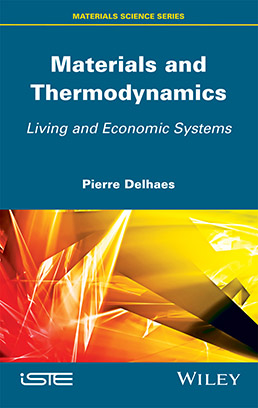
A thermodynamic system is defined according to its environment and its compliance. This book promotes the classification of materials from generalized thermodynamics outside the equilibrium state and not solely according to their chemical origin.
The author goes beyond standard classification of materials and extends it to take into account the living, ecological, economic and financial systems in which they exist: all these systems can be classified according to their deviation from an ideal situation of thermodynamic equilibrium.
The concepts of dynamic complexity and hierarchy, emphasizing the crucial role played by cycles and rhythms, then become fundamental. Finally, the limitations of the uniqueness of this description that depend on thermodynamic foundations based on the concepts of energy and entropy are discussed in relation to the cognitive sciences.
1. Form and Matter: The Genesis of Materials.
2. Thermodynamics of Condensed Matter.
3. Classification of Materials.
4. Materials and Devices for Energy and Information.
5. Microscopic Models and Statistical Thermodynamics.
6. Nanomaterials.
7. Engineering and Molecular Electronics.
8. Living World, Biomaterials and Biosystems.
9. Extensions to Living Organisms and Ecology.
10. Application of Thermodynamics to Economy.
11. From Thermodynamic Systems to Complex Systems.
Pierre Delhaes is the former CNRS Research Director at the Paul Pascal Research Center (University of Bordeaux, France) and former president of the French Carbon Studies Group.